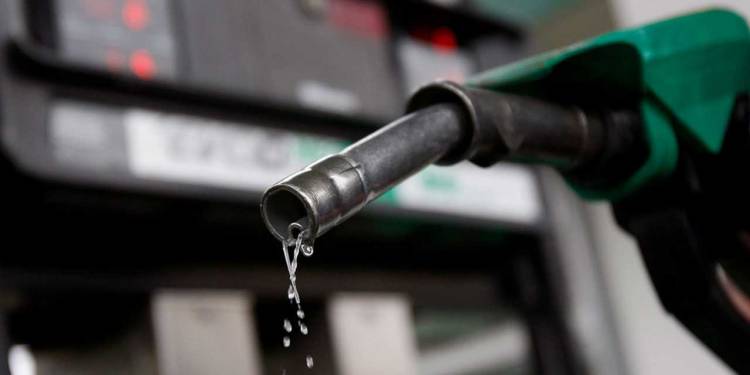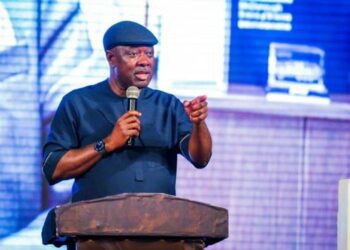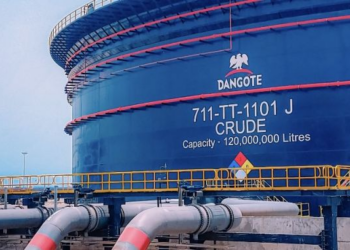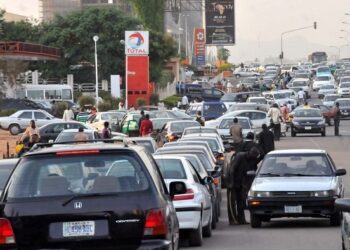Nigerians across the capital city of Abuja, Lagos, Port Harcourt, Akure, and other cities are lamenting over the fuel scarcity situation which seems to be getting worse barely one month to the country’s general elections.
Nairametrics gathered that in Abuja, citizens are going through hard times when trying to purchase fuel for their cars and generator sets.
High transport fare: Mr Gbenga Salako, a teacher in an Abuja private school, told Nairametrics that getting to his place of work in the Wuse district from his residence in Asokoro Extension has become difficult. According to him, the commercial drivers have increased the fare from N200 to N400 per drop.
- “And that is on a good day. Whenever vehicles are scarce, the fares are even higher. On some days, many of these vehicles are in long queues trying to get fuel and the roads are full of passengers with only a few commercial vehicles at our service. We are paying more and the vehicles are few because of the long queues,” he said.
The transport fare hikes have also affected some Nigerians who are determined to collect their permanent voters’ cards (PVCs) from their polling units. Some allege facing delays from electoral officials which have resulted in repeated visits to PVC collection centres without success.
Locked filling stations: A district hospital staff in Abuja told Nairametrics that some filling stations are locked during the day and inquiries as to the reason why are usually met with silence from the filling station workers.
- He said that the locked stations make the situation worse, making consumers create even longer queues at other open-filling stations.
- According to him, traders and business people lose many hours of productivity because of the queues, and some staff who work at private businesses are losing their jobs as a result of the effect of fuel scarcity on public transportation.
The audacity of the ruling party to campaign: Kelechi Ndukwe, a fashion designer, told Nairametrics that she is appalled at the fact that the ruling party is still campaigning for Nigerians to vote for them in the upcoming elections.
- According to her, the ruling party should resolve the fuel scarcity crisis that has been on since late 2022.
- She said a lot of Nigerians are angry with the ruling party and will be reflecting that anger by exercising their voting rights come February 2023.
Official price is denied: Nairametrics gathered that although the Federal Government has denied increasing the pump price of N165 per litre, filling stations are selling way above N165.
- Some Nigerian National Petroleum Company (NNPC) Limited filling stations in Abuja are selling at N190 per litre.
- Meanwhile, some regular filling stations are selling at N180 per litre and others are selling above N200 per litre.
Are filling station managers innocent? A filling station manager at an Abuja-based filling station who spoke anonymously told Nairametrics that his fellow managers are sometimes involved in the black-market trade.
- He said some managers lock up their stations at rush hour to sell the commodity through black market agents who are working for them.
- He said they usually make a lot of profit from these black-market traders who sell to motorists and generator owners for as high as N600 per litre.
Fuel subsidies questioned: If Nigerians are paying varying prices for fuel, what exactly is being subsidized? The World Bank has advised Nigeria to stop fuel subsidy payments. The Federal Government has announced that the payments will stop in the second quarter of 2023.
- During the 12th Kaduna State Council on Health meeting on Wednesday, January 25, Kaduna state Governor, Nasiru El-Rufai said that the Federal Government spent N6 trillion on fuel subsidy for six months, N4 trillion to subsidize the naira and N300 billion to subsidize electricity in 2023.
- He said that the money being spent by the Federal Government to subsidize electricity, petrol, and foreign exchange is no longer sustainable if the country must be able to tackle most of its socio-economic problems.
- He also noted that the N6 trillion on fuel subsidy is a quarter of the entire annual budget and that the amount is more than the entire budget of states and local governments on health this year.
- He urged Nigerians to decide to either support the removal of subsidies to enable the growth of other sectors of the economy or to allow it to continue for the benefit of a few individuals.






















